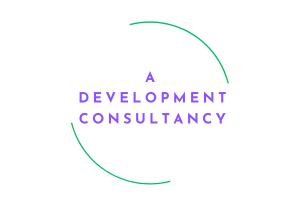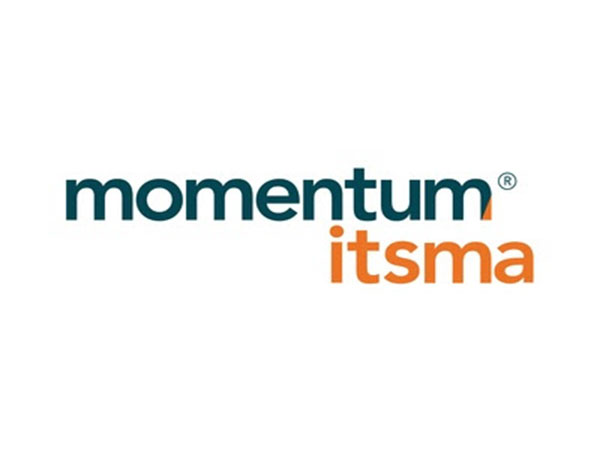Onboarding and the importance of doing it right
Today we talk to our newest People Business recruit, Zoe, who joined People Business in June 2023. As the previous newbie, Daniel Roberts-Green asks the questions focusing on onboarding.
So, Zoe tell us a bit about you and your journey that led you to joining us here at People Business
I’m Zoe, and I recently joined People Business as a Training Advisor. I finished university and was working part time, but I wanted to get a full-time role. I’m really into fashion and textiles, but I’m also interested in digital content design. I’ve worked freelance with People Business since 2019 so when the role came up, it felt like the stars were aligning. I’d been looking into digital marketing and e-learning roles, so to have a role that has the potential to touch on both of these areas felt like the dream opportunity.
Great, thanks! It can obviously be nerve-wracking joining a new team, with new systems and processes. A good onboarding is dependent on both parties making a concerted effort to get it right. What do you think that looks like?
It’s a difficult question because until I joined People Business, I’m not sure I’d really experienced an onboarding process! Obviously different companies do different things… I’ve started at places before and their approach has been, “OK, I’ll partner you up with this person, learn from them and let me know when you’re good to go on your own.” There’s no, ‘meet the team’ or ‘get integrated’. In one role, I was asked to share an email address with a colleague for my entire employment. Apart from the obvious data protection issues associated with that, it’s little things like that that make you feel like you belong (or not) from day one.
From my perspective a good onboarding experience is having the chance to meet as many people as possible, as soon as possible, and learn a little bit about them, what they do, and how their role will affect yours and vice versa. Then it’s all the systems accesses and tech – the last thing you want as a new employee is to be sat with nothing to do. You want to make a positive impact from your first moment, but that needs some upfront investment of time from the employer.
The other thing is getting an opportunity early on to learn about the company, more than just your role. For example, when I joined People Business I was really keen to understand where I fitted into the bigger picture and the projects and activities we were doing. I appreciate that this is a luxury when people are busy, but I have found it helps with integration early on.
I sense that you may have experienced some substandard onboarding moments?
I’ve had some less-than-ideal experiences! When I reflect on it now, at one company the application and pre-onboarding experience was strange too. I’d been made aware of the role by a friend who was already in the sector, but I couldn’t find out much about the role anywhere but on their website. The first stage telephone interview was scheduled quite quickly but the person interviewing was 20 minutes late, and after five minutes of telling me about the job it was over. There was then a few weeks wait until the second stage was scheduled, which was a trial shift.
I arrived on the day, met the person I’d be working for, but the rest of the day involved me sitting with another person. That was quite useful as I did learn about the role and the company, and what they were doing was interesting. But throughout that day, I spent about five minutes with my potential future manager.
Did they offer you the job?
Yes, they offered, and I accepted. It took a while for me to get started; it took a couple of weeks for the offer and a couple of months to receive the contract. Also, the start date was pushed back twice, which I agreed to, but when day one finally did come, they had recruited someone else into a similar role. It immediately felt a little strange – they had been interviewed after me but had already been working there for six weeks by the time I joined. The other person had their tech sorted but there was nothing for me to use, and it quickly became clear that I was working for them rather than the manager, who had interviewed me. This in itself wasn’t an issue, but it was never explained to me. I was given tasks to do on a day-to-day basis, but in terms of onboarding I never really received anything. From the day I joined to the day I left, I didn’t even receive my own email address… and that was six months!
What did your experience tell you about the importance of onboarding? And why do you think it so often goes wrong?
Without doubt, it’s difficult to get it perfect because time is a luxury that people don’t always have. Maybe the vacancy has been open for a while and the business needs to get you going quickly, or the previous person has left, and the work has piled up, so they think, “let’s get them started on it!”. If I were to summarise from my experience, as an employer I would consider the following:
- New starters need time to settle in
People are busy and have their own jobs to do. As the new person, I’m not sure they always want a whole load of meetings from the first minute and they need some time to get their feet under the table too.
- Onboarding is an investment in the future
Spending time at the outset to give people the best start will pay dividends in the long run, but I don’t think people need to necessarily know every little thing that they’re going to be doing for their first month!
- It’s important to enable and inform new starters
I think people want to know who and what they’re working for. Getting some pre-reading lined up is a good start – some tasks that they can do on their own to break up the meetings and discussions with colleagues. Spend some time planning activities, but rather than creating an endless calendar of events or list of tasks, spend the time with the person sensitising them to the team and the organisation.
- New starters need access to relevant systems and colleagues from day one
Organisations should have accesses set up so that new starters can go in and explore stuff. Let colleagues know who the new person is and where they’re sitting so they can drop by and say hi. It doesn’t all need to be formal.
Something that I appreciate at People Business is the buddy system that we have. Everyone in the company has a buddy with whom they regularly meet or chat. It’s a great informal way to be able to ask questions as a newbie and simply to get to know a colleague a bit more personally.
It is extremely difficult to get it all correct. But the consequences of doing nothing or very little are massive – with the cost of recruitment going up and time to hire into key roles taking longer, the risk of not correctly onboarding is that you lose a great person and have to start all over again.
Final question… you’re a few weeks in at PB; how are we doing?!
Yeah, I’m having fun! It’s been a good blend – small pieces of discrete work, combined with opportunities to get to know people. There’s a lot going on here so it’s great to have the opportunity to understand what the different teams are doing and how I can add value. So yes, it’s been good!
People Business works with clients to help them with their onboarding and induction programmes and processes. If you would like to discuss any requirements you may have in this area, please get in touch and talk to one of our consultants. We’d be happy to help.





